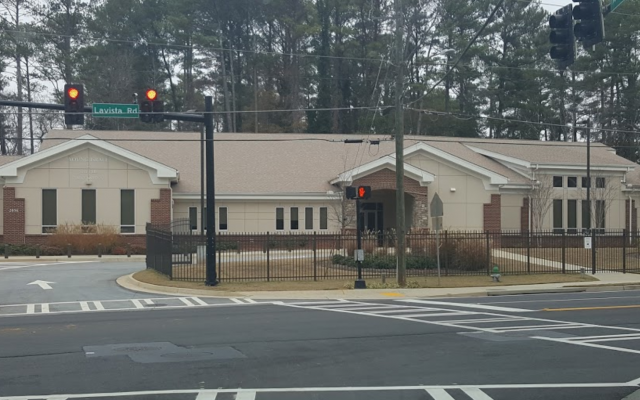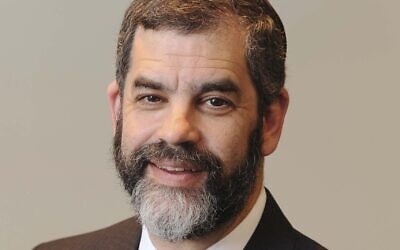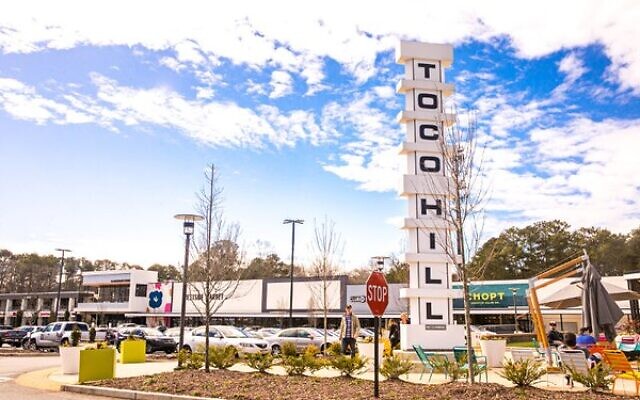Tracking COVID-19 in Toco Hills
The situation in the neighborhood is better now than several months ago, said the doctor assisting congregations in tracking the virus.
Dave Schechter is a veteran journalist whose career includes writing and producing reports from Israel and elsewhere in the Middle East.
In public health terms, the “mixing pattern” of Orthodox Jews sets them apart from less religiously observant Jews and the population in general.
Understanding that difference is important when tracking COVID-19 in the Toco Hills neighborhood of Atlanta, with its significant Orthodox population, according to a resident who is providing several synagogues with information gathered through an online survey.
“I’m mindful of the fact that the rates of COVID in Georgia reflect what’s going on in places like Valdosta, Athens, and St. Simons Island, and have very little relevance to us in Toco Hills, and even rates in DeKalb County have only partial relevance to us in Toco Hills,” said Dr. Rafael Harpaz, a specialist in vaccine-preventable and viral diseases, who recently retired after 26 years at the Centers for Disease Control and Prevention.
Harpaz designed an online system by which members of the Toco Hills community can report, anonymously if they choose, their exposure to COVID-19.
Respondents are asked whether their suspected case of COVID-19 was “suspected (self-diagnosed, no lab results),” “probable (physician diagnosed, no lab results),” or confirmed by a lab test. The survey asks about the source of the illness, whether “known exposure from local Orthodox community” or a known exposure from outside the local Orthodox community, whether the source is unknown but the individual works in a high risk occupation, or unknown but the individual either traveled or interacted with an out-of-town visitor. Those reporting are asked whether the rabbi may contact them if more information is needed, while noting that in some situations the public health department may need to make contact.

Congregation Beth Jacob and Congregation Ohr HaTorah, along with two or three smaller synagogues, have encouraged their members to use the system. Harpaz and his family are members of both Beth Jacob and Ohr HaTorah.
“Dr. Harpaz has been an indispensable resource in addressing the dozens and dozens of questions individuals and institutions in our community have had to resolve. His patience and generosity know no limits,” said Rabbi Ilan Feldman, senior rabbi at Beth Jacob.

Harpaz provides weekly reports to rabbis at the participating congregations. “It’s not rocket science. It’s just an additional system of surveillance,” he said. “It’s data for action. It’s information for action. We need to have a compass. We’re making plans for opening schools. That’s part of the mix, about what the risks are. Any information we can collect is useful,” he said.
Toco Hills primarily is in zip code 30329, a designation that covers a geographic area stretching from near the intersection of Buford Highway and Clairmont Road south to near Emory University, and from the intersection of Buford Highway and Northeast Expressway east toward where Clairmont Road intersects North Druid Hills Road.
The Dekalb County Department of Health said that it could not break down COVID-19 zip code data into smaller segments. As of Aug. 23, the 873 recorded cases in 30329 were nearly 5.5 percent of the county’s total of 15,969.
“Right now it’s much better [in Toco Hills] than in 30329 in general,” Harpaz said in late August. “There was a period of time back in late March and April when there were a number of cases, through keeping an ear to the rail, people knew about a fair number of cases.
“Right now there is not a problem in the Orthodox community compared with the general community. One can expect that it will be different because the mixing patterns will be very different. We are not more protected or less protected compared with other communities. It’s just a matter of who you’re mixing with,” he said.
In Toco Hills, “social patterns are defined by being Orthodox and living within walking distance of shul,” Harpaz said. Even though they may work outside of the neighborhood, people likely walk to the same synagogues and shop in the same stores. Their children likely play together and attend Orthodox schools and camps. Multiple infections in a single residence, while serious, may be less worrisome than multiple cases with unknown sources spreading in the same neighborhood.
Then there are people who live in one suburb, work elsewhere, and drive into the city or another suburb to attend synagogue, whose children go to different schools and have friends in different neighborhoods, and who frequent a larger variety of stores and restaurants. So many interactions over such a wide area increases the difficulty of knowing where someone may have been exposed to the virus.
In his years with the CDC, Harpaz worked on numerous disease outbreaks, including measles, hepatitis, herpes zoster, influenza and polio. “I have had a lot of opportunities in my career to foray into Orthodox communities, too,” he said, citing incidents of measles and mumps in sections of New York City.
Harpaz benefited from having “cultural fluency,” including about the way members of those communities lived, worshipped and engaged socially. Now he is applying that understanding to his own neighborhood as the COVID-19 pandemic continues to impact how the Orthodox community lives, worships and engages socially.




comments